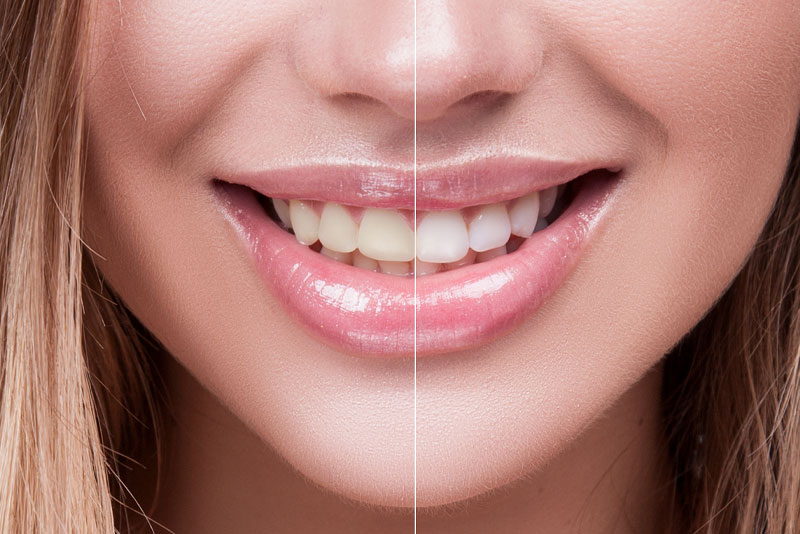


Whitening teeth can boost an individual’s self-confidence and significantly impact their chances of getting hired or receiving larger salary offers. While there are many over-the-counter products available to whiten teeth, professional teeth whitening treatments stand out as the most effective method for achieving a brighter, whiter smile. These treatments come in various types and can be performed in our Woodland Hills dental office or at home, depending on your dentist’s services.
To learn more about our teeth whitening methods at our Woodland Hills, CA, dental office, contact Dr. John Chaves today by calling 818-491-7294.

In-office teeth whitening is the most common type of professional teeth whitening treatment. It’s performed in a dental office and involves the use of a strong bleaching agent applied to the teeth. The bleaching agent is activated using a special light or laser, which speeds up the whitening process.
In-office whitening treatments usually take about an hour to complete and can provide dramatic results in a single session. A professional teeth whitening procedure is ideal for individuals who want fast, dramatic results or who have deep stains that can’t be effectively treated with at-home whitening kits.
Depending on your dentist, you may undergo teeth whitening with:
If you’re ready to learn more about the teeth whitening process, contact our Woodland Hills dentist.
At-home teeth whitening can be performed at home using custom-made whitening trays and a professional-strength whitening gel. The teeth whitening trays are made from impressions of the patient’s teeth, which ensures a comfortable and precise fit.
At-home professional teeth whitening kits are typically less expensive than in-office treatments and can provide excellent results over time. These treatments may take longer to achieve the desired results, but they can be a convenient and effective option for individuals who prefer to whiten their teeth at home.

Professional teeth whitening treatments can sometimes cause tooth sensitivity and gum irritation. This sensitivity may occur due to the whitening agent used in the treatment or by the trays used to hold the gel in place. Additionally, the potential side effects of hydrogen peroxide, like tooth sensitivity and gum irritation, can occur when used in high doses.
If you have tooth sensitivity, there are several options and considerations to keep in mind:
While professional teeth whitening treatments can effectively remove many types of surface stains, they may not be able to remove all types of stains. Deep, intrinsic stains caused by medication, trauma, or genetics may require additional treatments or cosmetic procedures, such as porcelain veneers or dental bonding, to effectively improve the appearance of the teeth.
Professional teeth whitening treatments are most effective on natural teeth and may not produce the same results on dental restorations, such as fillings, crowns, or veneers. It’s important to discuss any dental restorations with your dentist before undergoing a professional teeth whitening treatment to determine the best course of action.
Professional teeth whitening treatments aren’t recommended for individuals with braces as the bleaching agent can’t penetrate the brackets and wires. However, once the braces are removed, a professional teeth whitening treatment can be performed to achieve a brighter, more even smile.
The frequency of professional teeth whitening treatments will depend on the individual’s oral hygiene habits and lifestyle choices. Most dentists recommend waiting at least six months between treatments to avoid over-bleaching the teeth and causing sensitivity.
Do you want whiter teeth? Contact our dentist today to learn more about professional teeth whitening treatments and see which option is best for you. Don’t let stained or discolored teeth hold you back from feeling confident and proud of your smile. Get your teeth whitened today!
Contact our Woodland Hills, CA, dentist‘s office at 818-491-7294 to schedule your teeth whitening consultation.
I understand the information disclosed in this form may be subject to re-disclosure and may no longer be protected by HIPAA privacy regulations and the HITECH Act.
